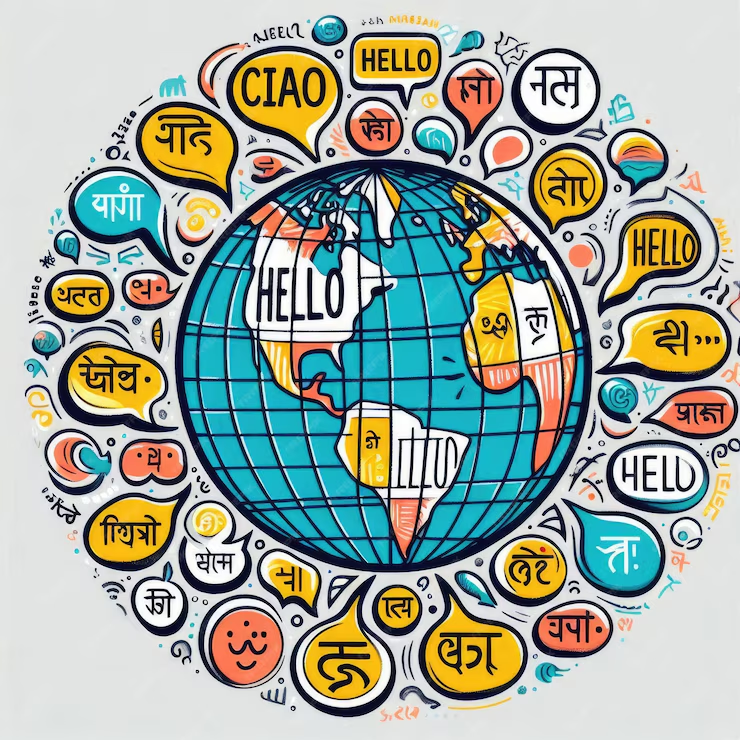In today’s globalized world, communication across languages has become essential. Among the many translation needs, İngilizce Türkçe çeviri (English-Turkish translation) is one of the most commonly sought-after services. Whether for business, education, travel, or casual communication, translating between English and Turkish requires accuracy, cultural understanding, and an awareness of linguistic nuances.
This article delves into everything you need to know about İngilizce Türkçe çeviri, providing a detailed guide to ensure accurate and effective translations.
What Is İngilizce Türkçe Çeviri?
İngilizce Türkçe çeviri refers to the process of converting text, speech, or other forms of communication from English to Turkish or vice versa. Turkish is a unique language belonging to the Turkic language family, with distinct grammatical structures, vocabulary, and expressions. English, being a global lingua franca, requires translators to bridge not only linguistic differences but also cultural contexts.
Why Is İngilizce Türkçe Çeviri Important?
- Cultural Exchange: Translating between English and Turkish enables the exchange of cultural ideas, literature, and traditions. It fosters understanding between English-speaking countries and Turkey.
- Business Opportunities: Turkey is a growing hub for international trade. Accurate İngilizce Türkçe çeviri helps businesses communicate with Turkish partners, navigate contracts, and localize marketing materials.
- Education: With the increasing availability of educational resources in English, Turkish students benefit greatly from translations. Similarly, English-speaking learners interested in Turkish culture or language need reliable translations.
- Tourism: Turkey’s tourism industry thrives on visitors from English-speaking nations. Providing clear and accurate translations in brochures, guides, and signs enhances the visitor experience.
Key Challenges in İngilizce Türkçe Çeviri
Translating between English and Turkish is not as straightforward as it may seem. Here are some common challenges:
1. Differences in Grammar
Turkish has a subject-object-verb (SOV) structure, while English uses a subject-verb-object (SVO) structure. This fundamental difference requires careful rephrasing during translation.
2. Cultural Nuances
Direct translation often fails to capture cultural expressions. For example, idioms or proverbs in Turkish may not have direct equivalents in English.
3. Word Order and Meaning
Turkish uses suffixes extensively to convey meaning, while English relies on word order. For instance:
- English: “I am going to school.”
- Turkish: “Okula gidiyorum.” (“to school-going-I”)
4. Formal vs. Informal Speech
Turkish differentiates between formal and informal speech more explicitly than English. Translators must adjust tone appropriately based on the context.
Essential Tips for Effective İngilizce Türkçe Çeviri
To ensure accuracy and clarity, consider the following tips:
1. Understand Both Languages Thoroughly
A deep understanding of grammar, vocabulary, and context in both English and Turkish is crucial for effective translation.
2. Focus on Context
Translation is not a word-for-word process. Always consider the broader context to ensure the meaning remains intact.
3. Use Reliable Translation Tools
While machine translation tools like Google Translate can help, they often fail to capture nuance. Professional translation software or human translators are more reliable.
4. Stay Updated on Modern Usage
Languages evolve over time. Staying informed about contemporary slang, expressions, and formal usage in both languages enhances translation quality.
5. Proofread and Edit
Revisiting translated work helps catch errors and ensures smoother flow and readability.
Common Applications of İngilizce Türkçe Çeviri
- Legal Documents: Contracts, agreements, and legal notices require precise translation to avoid misunderstandings.
- Technical Manuals: Industries like technology and engineering depend on accurate translations for manuals and guides.
- Marketing Content: Translating advertisements and campaigns requires creativity to resonate with local audiences.
- Education: Academic papers, textbooks, and online resources are frequently translated to support students and professionals.
Qualities of a Good İngilizce Türkçe Çevirmen
A skilled translator should possess:
- Language Proficiency: Mastery of both English and Turkish.
- Attention to Detail: Precision in grammar, spelling, and terminology.
- Cultural Awareness: Understanding idiomatic expressions and societal norms.
- Specialization: Expertise in specific fields like law, medicine, or technology.
- Experience: Practice and familiarity with common translation challenges.
How to Choose the Right İngilizce Türkçe Çeviri Service
Selecting a reliable translation service ensures accuracy and professionalism. Look for:
- Credentials: Certifications or qualifications in translation.
- Reviews: Positive feedback from previous clients.
- Specialization: Expertise in the required field.
- Turnaround Time: The ability to deliver translations promptly.
- Confidentiality: Assurance of data protection and privacy.
FAQs About İngilizce Türkçe Çeviri
1. What makes Turkish grammar unique compared to English?
- Turkish relies on suffixes and has an SOV structure, which differs significantly from English’s SVO structure.
2. Can machine translation tools handle İngilizce Türkçe çeviri accurately?
- Machine tools provide basic translations but struggle with nuance, idioms, and complex grammar. Professional translation is often more reliable.
3. How long does it take to translate an average document?
- The time depends on the document’s length and complexity. A professional translator can typically translate 2,000-3,000 words per day.
4. Is Turkish a hard language for English speakers to learn?
- Turkish can be challenging due to its grammar and structure, but consistent practice makes it manageable.
5. Why is cultural understanding important in translation?
- Cultural understanding ensures that translations are not only accurate but also appropriate and relatable to the target audience.
Conclusion
İngilizce Türkçe çeviri is more than a linguistic exercise—it’s a bridge between two rich and diverse cultures. Whether for personal, academic, or professional purposes, accurate translation requires a deep understanding of both languages and their contexts. By focusing on precision, cultural sensitivity, and proper tools, anyone can achieve effective communication across English and Turkish read more articles. StreamEast App





